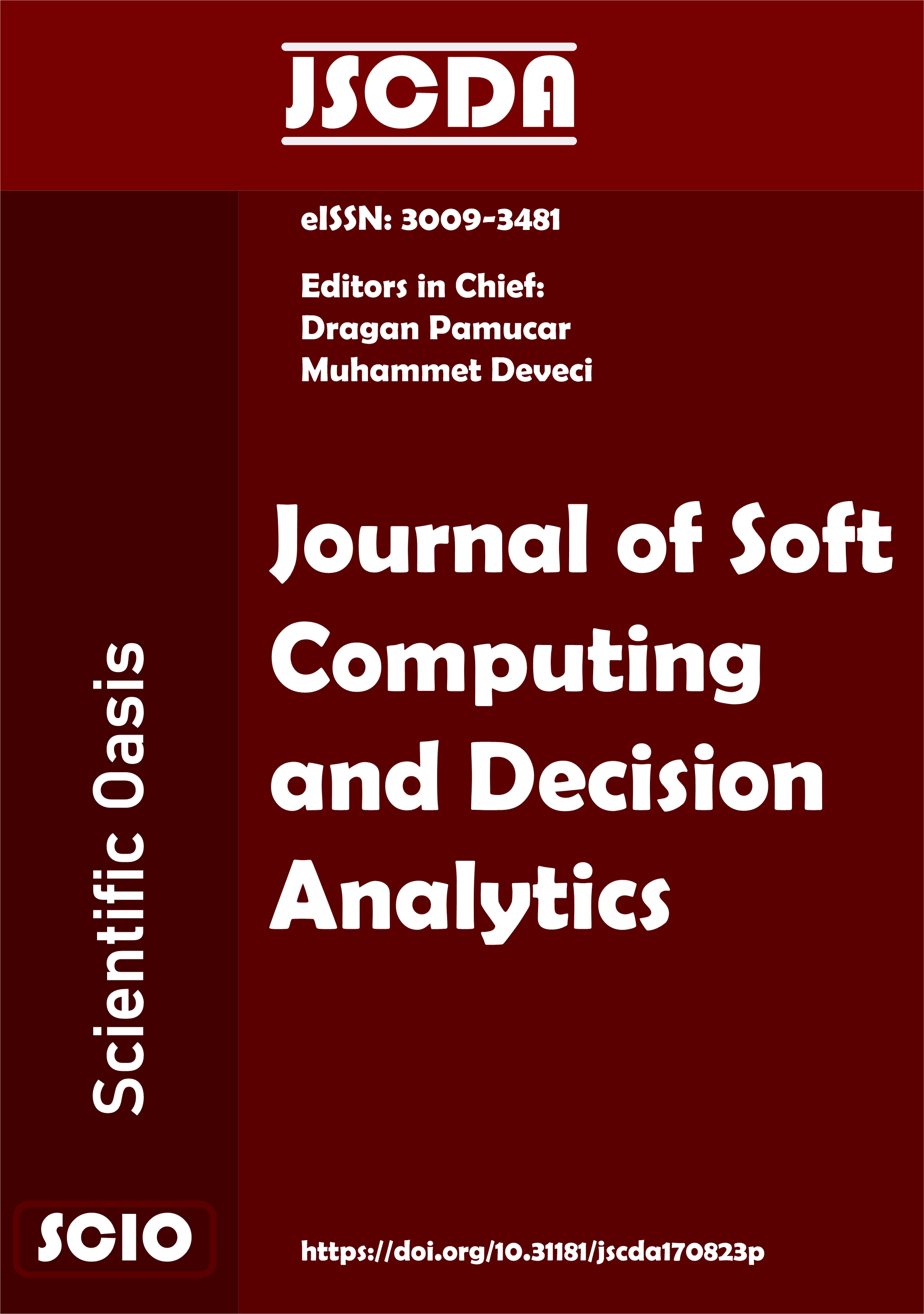ChatGPT and OpenAI: A Comprehensive Bibliometric Review
DOI:
https://doi.org/10.31181/jscda11202324Keywords:
OpenAI, ChatGPT, Bibliometric Analysis, VOSviewer, Web of SciencesAbstract
The introduction of OpenAI ChatGPT has sparked a lively discussion among researchers in academia, investors in business sector, and governments in policymaking circles. Numerous concerns have been expressed by Commentators from various scientific domains. Therefore, this study is an attempt to review the existing research pertaining to OpenAI's ChatGPT using bibliometric analysis. The study reviewed 210 research collected from Web of Sciences covering all disciplines. The analysis was based on (i) co-occurrence (keywords), (ii) citations and (iii) co-authorship. We found, keywords such as “ChatGPT, artificial intelligence, OpenAI, AI, education, chatbots, natural language processing, medicine, and management” are the most frequently used in OpenAI ChatGPT. Moreover, we identified that areas including cryptocurrencies, healthcare, future nursing, information value, non-human authors, algorithmic bias, clinical otolaryngology, clinical decision-making, large language models, generative pre-trained transfer are not covered deeply investigated using OpenAI ChatGPT. Finally, we found around 155 authors from 109 institutions located in 28 countries led by United Sated and Germany are actively engaged in producing research using OpenAI ChatGPT.
References
Ali, H., & Aysan, A. F. (2023). What will ChatGPT Revolutionize in Financial Industry?. Available at SSRN 4403372. https://doi.org/10.2139/ssrn.4403372.
Alkaissi, H., & McFarlane, S. I. (2023). Artificial hallucinations in ChatGPT: implications in scientific writing. Cureus, 15(2). https://doi.org/10.7759/cureus.35179.
Aydın, Ö., & Karaarslan, E. (2022). OpenAI ChatGPT generated literature review: Digital twin in healthcare. Available at SSRN 4308687. https://doi.org/10.2139/ssrn.4308687.
Bhattacharya, K., Bhattacharya, A. S., Bhattacharya, N., Yagnik, V. D., Garg, P., & Kumar, S. (2023). ChatGPT in surgical practice—a New Kid on the Block. Indian Journal of Surgery, 0123456789, 1–4. https://doi.org/10.1007/s12262-023-03727-x.
Biswas, S. (2023). The Function of chat GPT in social media: According to chat GPT. Available at SSRN 4405389. https://doi.org/10.2139/ssrn.4405389.
Biswas, S. S. (2023). Role of chat gpt in public health. Annals of biomedical engineering, 51(5), 868-869. https://doi.org/10.1007/s10439-023-03172-7.
Dave, T., Athaluri, S. A., & Singh, S. (2023). ChatGPT in medicine: an overview of its applications, advantages, limitations, future prospects, and ethical considerations. Frontiers in Artificial Intelligence, 6, 1169595. https://doi.org/10.3389/frai.2023.1169595.
Dwivedi, Y. K., Kshetri, N., Hughes, L., Slade, E. L., Jeyaraj, A., Kar, A. K., ... & Wright, R. (2023). “So what if ChatGPT wrote it?” Multidisciplinary perspectives on opportunities, challenges and implications of generative conversational AI for research, practice and policy. International Journal of Information Management, 71, 102642. https://doi.org/10.1016/j.ijinfomgt.2023.102642.
Farhat, F., Sohail, S. S., & Madsen, D. Ø. (2023). How trustworthy is ChatGPT? The case of bibliometric analyses. Cogent Engineering, 10(1), 2222988. https://doi.org/10.1080/23311916.2023.2222988.
Faruk, M., Rahman, M., & Hasan, S. (2021). How digital marketing evolved over time: A bibliometric analysis on scopus database. Heliyon, 7(12), e08603, https://doi.org/10.1016/j.heliyon.2021.e08603.
Ferreira, M. P., Santos, J. C., de Almeida, M. I. R., & Reis, N. R. (2014). Mergers & acquisitions research: A bibliometric study of top strategy and international business journals, 1980–2010. Journal of Business Research, 67(12), 2550-2558. https://doi.org/10.1016/j.jbusres.2014.03.015.
Geerling, W., Mateer, G. D., Wooten, J., & Damodaran, N. (2023). ChatGPT has aced the test of understanding in college economics: Now what?. The American Economist, 68(2), 233–245. https://doi.org/10.1177/05694345231169654.
Iskender, A. (2023). Holy or unholy? Interview with open AI’s ChatGPT. European Journal of Tourism Research, 34, 3414-3414. https://doi.org/10.54055/ejtr.v34i.3169.
Lewis, D. M., & Alpi, K. M. (2017). Bibliometric network analysis and visualization for serials librarians: an introduction to Sci2. Serials Review, 43(3-4), 239-245. https://doi.org/10.1080/00987913.2017.1368057.
Lobonț, O. R., Țăran, A. M., & Costea, F. (2020). E-Government Research Still Matter? A Bibliometric Analysis. Annals of the University Dunarea de Jos of Galati: Fascicle: I, Economics & Applied Informatics, 26(2), 58-63. doi: https://doi.org/10.35219/eai15840409106.
Onden, A., & Kiygi-Calli, M. (2018). The effects of brands' posts on social media: conceptual framework and application method. Research Journal of Business and Management, 5(3), 238-250.
Pradana, M., Elisa, H. P., & Syarifuddin, S. (2023). Discussing ChatGPT in education: A literature review and bibliometric analysis. Cogent Education, 10(2), 2243134. https://doi.org/10.1080/2331186X.2023.2243134.
Shafique, M. (2013). Thinking inside the box? Intellectual structure of the knowledge base of innovation research (1988–2008). Strategic management journal, 34(1), 62-93. https://doi.org/10.1002/smj.2002.
Short, C. E., & Short, J. C. (2023). The artificially intelligent entrepreneur: ChatGPT, prompt engineering, and entrepreneurial rhetoric creation. Journal of Business Venturing Insights, 19, e00388. https://doi.org/10.1016/j.jbvi.2023.e00388.
Zarifhonarvar, A. (2023). Economics of chatgpt: A labor market view on the occupational impact of artificial intelligence. Available at SSRN 4350925. https://doi.org/10.2139/ssrn.4350925.
Zhang, C., Zhang, C., Li, C., Qiao, Y., Zheng, S., Dam, S. K., ... & Hong, C. S. (2023). One small step for generative ai, one giant leap for agi: A complete survey on chatgpt in aigc era. arXiv preprint arXiv:2304.06488. https://doi.org/10.48550/arXiv.2304.06488.
Downloads
Published
Issue
Section
License
Copyright (c) 2023 Scientific Oasis

This work is licensed under a Creative Commons Attribution-NonCommercial-NoDerivatives 4.0 International License.
















